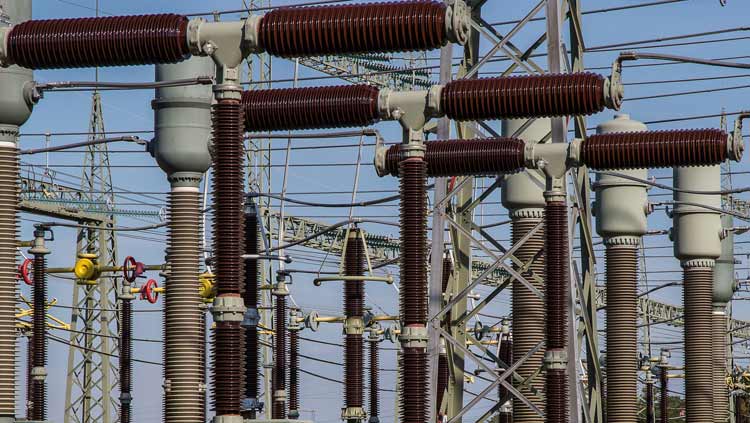Benefits of Energy Management

It has become a necessity for people to have a basic understanding of how to conserve electricity in present times. It is needed even if it is to reduce the costs of maintenance or reduce both light and air pollution. Learning to save energy through the efficient use of energy management has the potential to change how people better their lives and their homes. It also has a direct effect on how a city functions cleanly and efficiently enough to keep everyone healthier.
Overuse or wastage of energy can impact the environment by increasing the carbon footprint released into the atmosphere. This is why everyone needs to understand how managing energy can benefit modern living by partaking in energy management courses. NTPC School of Business is one of the best places to join these courses. Some of these courses are for those entering the realm of energy management. Other courses are for industry leaders that wish to enter the energy industry and understand the subtleties of the shifting energy situation. Regardless of whom it is for, courses like these teach people how to observe the usage of energy and analyse the ways it can be efficiently consumed in a controlled scenario. This is to make sure that the output remains the same, and energy is conserved as well.
Renewable Sources As An Alternative:
Most of the carbon emissions and other pollutants occur during the generation of electricity while using fossil fuels. This is a reason why many countries have forayed into using renewable sources of energy. These sources of energy are cleaner and help conserve the environment. Even India obtains more than 40% of its electricity from renewable energy sources. There are renewable energy management courses for those that wish to learn how to make efficient use of these energy sources. It has become necessary to live in modern times and have the knowledge to use these energy sources efficiently.
Using renewable energy sources produces no greenhouse gas emissions. It also helps economically as it reduces dependence on imported fuels. The great thing about harnessing from renewable sources is the low maintenance requirements towards such facilities.
Benefits of Conserving Energy:
Using cleaner alternative sources of energy is a great step forward, but there are some caveats to this. Besides, even though these sources are a good alternative, it usually involves a high cost to install such facilities. There’s also the matter of low-efficiency levels and problems with unreliability because of dependence on climate conditions. This is why conserving and managing energy provides its own benefits towards life in many different ways.
Conserving energy helps reduce living expenses. With reduced consumption of electricity, a drop in demand can cause prices to fall. Most equipment also lasts longer if those aren’t used as frequently. As a result, this reduces expenditure on electrical home appliances as well as privately owned vehicles that depend on electricity. From a pragmatic perspective, it does help to attend one of these energy management colleges in India to understand how this can help both facilities and houses to manage energy better.
With increased public consumption of electricity, more power plants are built to share the load of energy generation. This enables more pollution to occur and risks poisoning the environment. Depending on coal and nuclear power to generate electricity has caused significant harm to the environment. Conserving can help reduce the number of risks involved.
There is a natural order to things and wildlife is a part of it. There’s a balance that is maintained in life because of this, and wildlife plays an important role. This is why it is important to look at ways to protect it with the use of energy conservation. Less consumption of energy means there is a reduced need for the creation of energy, which in turn reduces pollution from power plants.
Even though a significant portion of electricity generated in India comes from renewable sources of energy, most of it is still dependent on non-renewable sources. This remains a concern for the future generations as such sources of energy cannot be recreated by the planet and are hence finite. As part of managing energy, if conservation is prioritised, it can be ensured that affordable energy is available for future generations.
A Healthier Living:
While it is not possible to install facilities to harness most renewable sources everywhere, houses in most regions can be at least fitted with solar panels. LED lighting can be used to replace older incandescent lighting. While the initial costing is higher, these not only use significantly lesser energy but also last longer. Vehicles should also be used that do not depend on fossil fuels. Making it a personal responsibility to not waste energy should be a priority as well, as this would save energy harnessed by the solar panels.
The first steps are always harder, and usually takes a lot of commitment. But the huge advantages that it can bring to a house, a community, or even a city is well worth it. With savings from conserving energy as well as creating a safer environment are both profitable for the common people. A cleaner air or the lack of power-cuts are both something people of this country can look forward to with proper energy management in place.
Conclusion:
There are a few impacts that waste of energy can have on life, one of which is an increased carbon footprint, which is also one of the root causes of global warming. A reduction in the supply of electricity can be one of the direct causes, and that can affect emergency services in cities which could adversely affect the lives of people. If it is not done from an intention to conserve, it should at least be practiced from a strategic point of view. There are also increased costs of electricity, which may not be economical for most people. Apart from the benefits that energy management can offer, it can also save people from the harmful effects.




One Comment